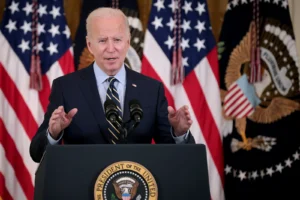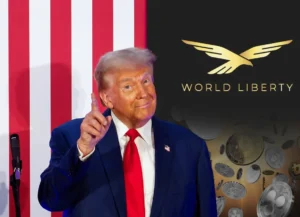US Tightens AI Chip Export Rules to Protect Security and Leadership, Faces Industry Pushback

The Biden administration unveiled new export regulations on Monday, targeting advanced computer chips used in artificial intelligence (AI). The measures aim to balance national security concerns with economic interests but have sparked criticism from industry groups.
The new framework restricts chip exports to approximately 120 countries, including Mexico, Portugal, Israel, and Switzerland. Commerce Secretary Gina Raimondo stressed the importance of safeguarding America’s AI leadership. “As AI grows more powerful, the risks to national security become more acute,” Raimondo said. She explained that the framework is designed to protect cutting-edge AI technology from adversaries while enabling its benefits to be shared with partner nations.
National Security Adviser Jake Sullivan echoed this sentiment, stating that the restrictions aim to keep advanced AI development within the US and its close allies.
However, industry groups, including the Information Technology Industry Council and the Semiconductor Industry Association (SIA), raised concerns about potential disruptions to supply chains and harm to US competitiveness. “The new rule risks causing unintended and lasting damage to America’s economy and global standing in semiconductors and AI by ceding strategic markets to competitors,” warned SIA President and CEO John Neuffer.
An anonymous industry executive criticized the restrictions, arguing they could hinder the export of chips used in video games and data centers, contrary to government claims.
The rules, currently under a 120-day comment period, could be finalized by the incoming Trump administration. Officials justified the urgency, citing a perceived six- to 18-month US advantage in AI over rivals like China.
Nvidia’s Ned Finkle criticized the framework, stating, “These rules, disguised as anti-China measures, fail to enhance US security. They target widely available technology found in mainstream gaming PCs and consumer hardware.”
The restrictions exempt roughly 20 allies, including Australia, Canada, France, Germany, Japan, South Korea, and the UK. Other nations face import caps of 50,000 graphics processing units (GPUs), with potential increases to 100,000 through government agreements. Some institutions may apply for permission to purchase up to 320,000 units over two years, though limits will be placed on overall AI computational capacity abroad. Orders equivalent to 1,700 units will be exempt from licensing, benefiting universities and medical institutions.
Microsoft expressed confidence in its ability to comply. “We are confident we can fully adhere to this rule’s high security standards while meeting the technology needs of countries and customers worldwide,” said Brad Smith, Microsoft’s president.








